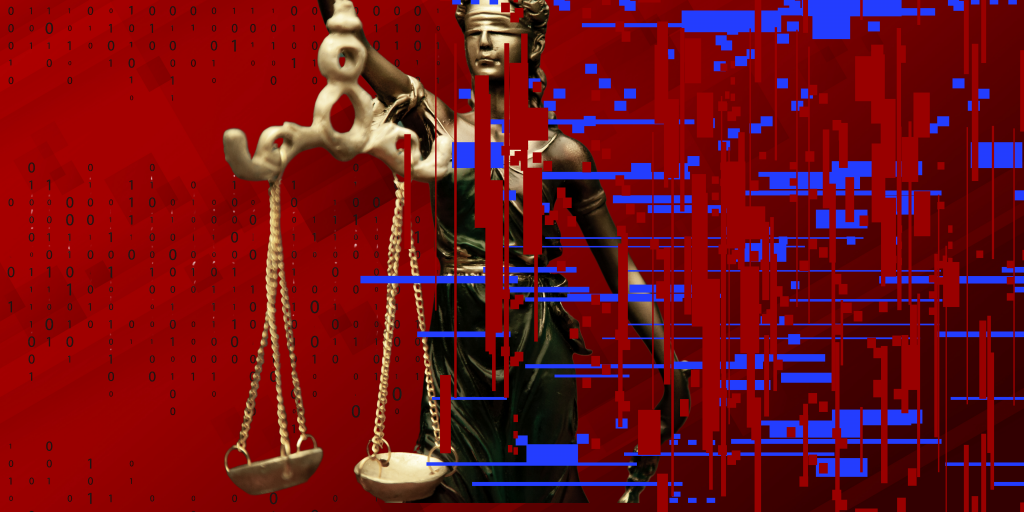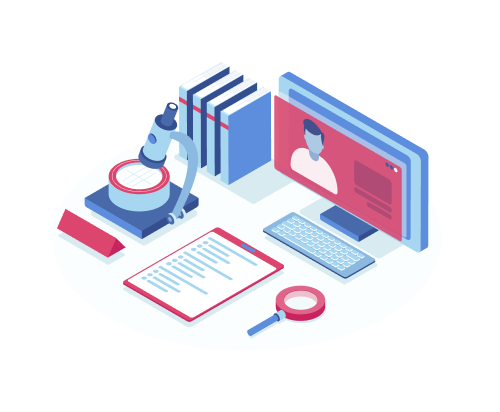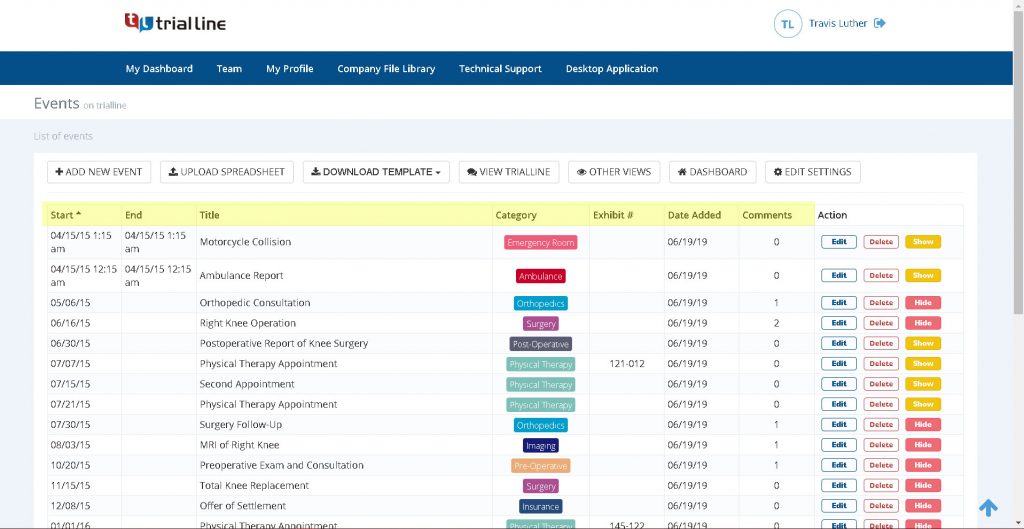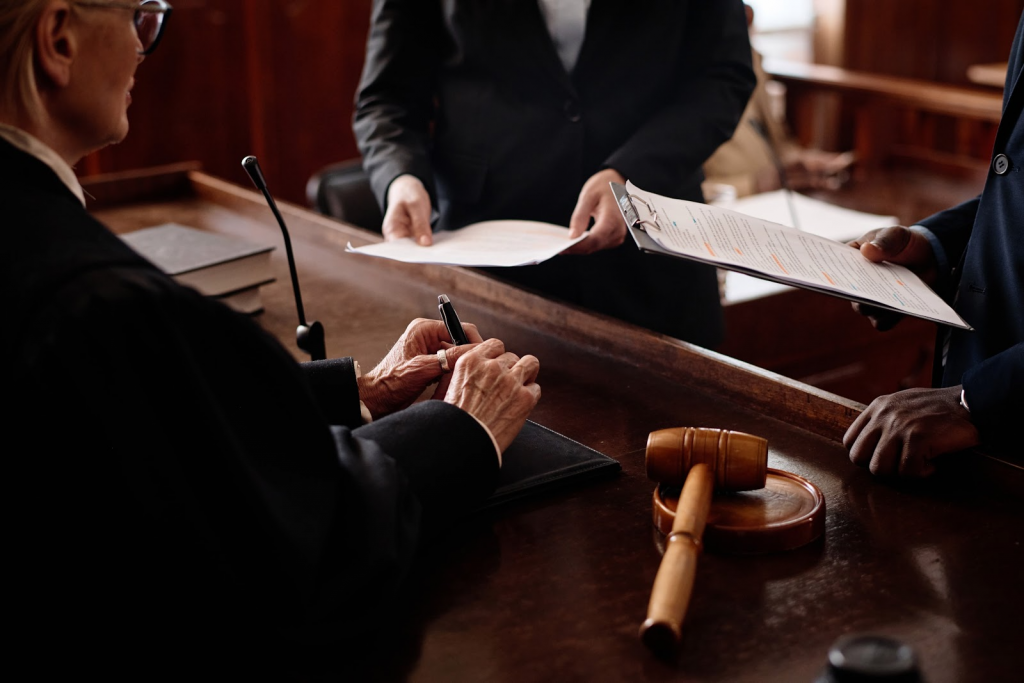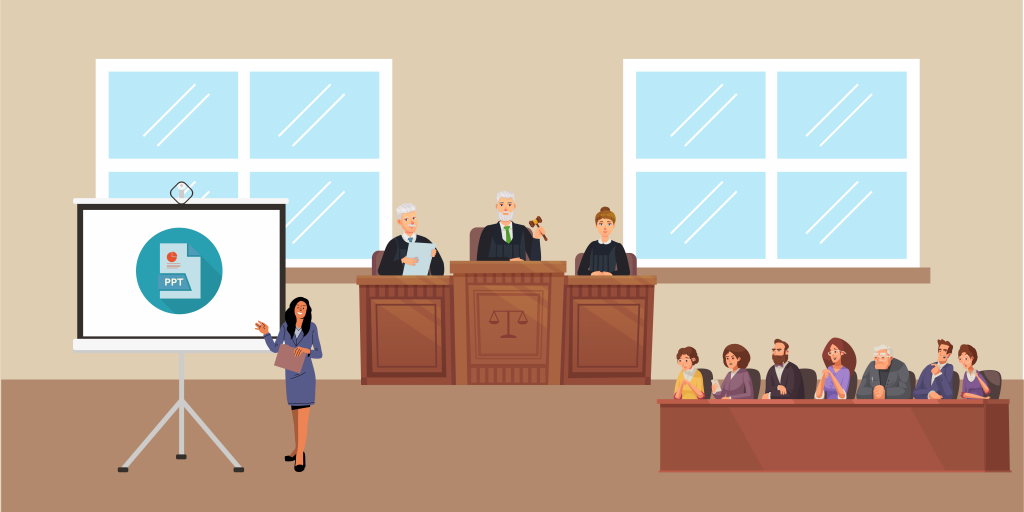Generative AI technology is changing content creation by producing text, images, music, and videos. Popular generative AI tools like ChatGPT use large language models and extensive training data to train AI models.
However, this process has led to a rise in generative AI lawsuits. These focus specifically on copyright infringement, trademark infringement, and unfair competition.
This article explores the timeline of generative AI lawsuits. We also explain their impact on AI technology, developers, and technology companies.
Transform complex case details into clear, visual timelines with TrialLine. Try It Free for 7 Days!
What Is Generative AI?
Generative AI is a type of artificial intelligence that creates text, images, audio, and video. Unlike traditional AI systems that analyze data, generative AI models produce new content based on patterns learned from large datasets.
A significant consequence of generative AI is the use of copyrighted materials without permission. These claims have led to lawsuits alleging copyright infringement in various district courts.
Several AI companies are facing class action lawsuits in which plaintiffs allege that their generative AI models rely on copyrighted materials without permission. Notable cases from Raw Story Media, Intercept Media, and San Jose Mercury News claim direct copyright infringement.
Courts in the Northern District of California and the Southern District of New York are handling these cases. Legal arguments often address fair use and the Digital Millennium Copyright Act (DMCA).
For instance, Stability AI, the creator of Stable Diffusion, is facing lawsuits over generated images that resemble the original artwork. OpenAI is accused of using The New York Times’s copyrighted news articles in its training data.
These cases raise questions about the legality of using training material without consent.
Recommended Reading
TrialLine: The Legal Timeline Software’s Most Notable Features
What Is the History of Generative AI?
Early versions of generative AI appeared in chatbots during the 1960s but with limited capabilities. The major shift came in 2014 when generative AI technology advanced enough to produce highly realistic images, videos, and audio resembling real people.
The introduction of large language models (LLMs) further boosted generative AI. Using deep learning techniques, LLMs allow AI systems to perform natural language processing (NLP). This improved AI’s ability to understand, translate, and predict language.
As a result, newer generative AI models can generate human-like, coherent responses.
The Rise of Generative AI and Early Legal Concerns
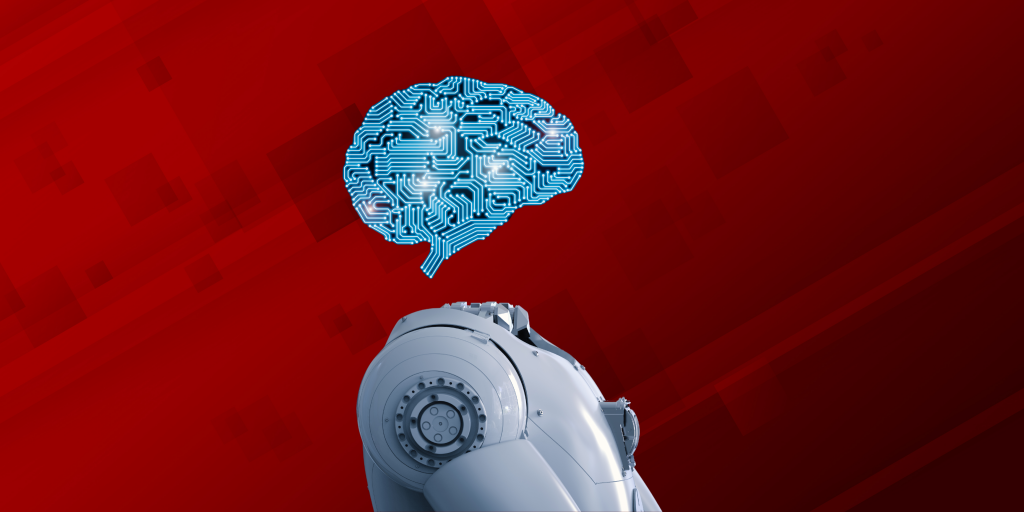
As companies like OpenAI, Google DeepMind, and others developed AI systems capable of generating text, images, and music, concerns surrounding intellectual property, copyright, and data usage quickly emerged.
The ability of these generative AI models to create content raised complex legal questions about ownership and usage rights.
2018: First Wave of Copyright Concerns
The emergence of generative AI tools in 2018 brought the first wave of copyright issues. The key debate centered on the ownership of AI-generated content.
Legal experts and creators questioned who should hold the rights to content produced by AI systems—the AI developers, the users, or the AI itself.
Key concerns included:
- Ownership disputes: Could AI-generated works qualify for copyright protection?
- Rights assignment: If copyright protection is applied, would the rights belong to the developer, the user, or another party?
- Legal gaps: Courts had no clear framework for handling AI-generated works, making these disputes challenging to resolve.
2019: AI-Generated Content and Copyright Challenges
In 2019, concerns deepened as more creators noticed AI tools producing content similar to their original works. Tools like DeepArt and Artbreeder became popular for generating new images based on existing artwork.
This raised legal questions about whether AI-generated content constituted derivative works, potentially infringing on the rights of the original creators.
Key developments in 2019 included:
- Derivative works debate: Were AI-generated images based on existing works legally considered derivatives?
- Compensation concerns: Should original creators receive compensation if their works contributed to AI-generated outputs?
- The focus of early lawsuits: Lawsuits alleging copyright infringement began focusing on how much original material AI models used during training and whether this use breached copyright law.
Key Lawsuits From 2020 to 2022
Between 2020 and 2022, several generative AI lawsuits highlighted growing legal concerns about copyright infringement, data usage, and fair use.
These cases involved major AI companies, AI systems, and content creators. It brought discussions on ownership and ethical practices in AI development into focus. The plaintiffs claimed that their copyrighted materials were used without consent.
2020: Authors vs. Generative Text Models
The Authors Guild raised concerns over generative AI systems trained on copyrighted materials without permission. The central question in this case was whether training AI models on copyrighted texts qualified as fair use.
Key highlights:
- Fair use debate: Was training an AI model on copyrighted texts without permission legally acceptable?
- Data rights concerns: Authors questioned the ethical and legal implications of using proprietary content for AI training.
- Broader impact: This lawsuit sparked industry-wide discussions about data ownership, content usage, and ethical boundaries in AI development.
2021: Visual Artists and AI-Generated Images
In 2021, visual artists took legal action against companies like DeepMind and Runway ML. The artists alleged that these companies used large datasets containing copyrighted art without consent to train AI models, resulting in AI-generated images that infringed on their creative rights.
Key highlights:
- Unauthorized data scraping: Artists argued their work had been taken from the web without permission.
- Creative rights infringement: The AI-generated images based on these datasets were seen as a violation of the original creators’ intellectual property.
This period saw a sharp increase in legal claims from artists demanding protection against unauthorized use of their work.
2022: The Case of OpenAI and Data Scraping
In 2022, OpenAI faced a landmark lawsuit from a consortium of publishers and news outlets. The plaintiffs claimed that their articles were used in OpenAI’s training data, particularly for GPT-3, without consent.
The case centered on the legality of data scraping, where AI companies gather vast amounts of publicly available data for training purposes.
Key highlights:
- Focus on data scraping: The lawsuit questioned whether collecting and using public data without compensation was lawful.
- Impact on AI regulation: This case became a turning point for future discussions on regulations surrounding AI training practices.
The outcome would affect how AI developers and technology companies handle training data in future AI products.
Major 2023 Lawsuits and 2024 Updates
The years 2023 and 2024 marked significant developments in generative AI lawsuits. New industries became involved in legal disputes over AI-generated content.
2023: Musicians vs. AI-Generated Music
In 2023, the music industry became the next major focus of generative AI lawsuits. AI-generated music, created by AI systems trained on extensive libraries of existing tracks, led to multiple legal actions from artists, producers, and record labels.
Key highlights:
- Universal Music Group (UMG) lawsuit: UMG filed a case against a tech company for producing AI-generated tracks that closely resembled the styles of popular artists.
- Copyright and publicity rights: UMG argued that the AI systems infringed on both copyright and the right of publicity, particularly when AI synthesized the voices of deceased artists.
May 2024 Updates: Lawsuits and warnings
May 2024 saw a surge in legal actions and warnings related to generative AI. From record labels defending intellectual property to personal rights disputes involving voice replication, this month highlighted the growing legal complexities tied to AI development.
Below is the complete detailed timeline of the May 2024 lawsuits and warnings:
May 16: Sony Warns AI Companies
According to a Bloomberg report, Sony Music Group, one of the largest record labels globally, issued warnings to AI companies and music streaming platforms, cautioning them against using its content without proper authorization.
Sony Music sent letters to over 700 companies in a bid to safeguard its intellectual property, which includes album cover art, metadata, musical compositions, and lyrics, from being used to train AI models.
May 16: Lawsuit vs. Lovo
Two voice actors have sued AI startup Lovo in Manhattan federal court, alleging that the company unlawfully replicated their voices and used them in its AI voiceover technology without their permission, as reported by Reuters.
May 21: Potential Lawsuit
As reported by The Hollywood Reporter, actress Scarlett Johansson has threatened to take legal action against OpenAI. The report states that the company allegedly copied and imitated her voice after she refused to license it to them.
June 11: AI lawsuit dropped
CNBC reports that Tesla’s CEO Elon Musk dropped his lawsuit against OpenAI and co-founders Sam Altman and Greg Brockman. In the suit, Musk alleged that Open AI abandoned its social-good mission to focus on revenue opportunities.
June 14: Proposed lawsuit settlement
As per Reuters, facial recognition company Clearview AI has agreed to settle claims that it violated the privacy rights of millions of Americans. The settlement is part of an unusual class action agreement, based on a potential future stake in the company’s value.
June 24: Music industry files lawsuit
According to The Indian Express, several major record labels have filed lawsuits against two AI startups, Suno and Udio, accusing them of copyright infringement on an “almost unimaginable scale”. The lawsuit claims that these companies developed AI tools capable of generating music tracks within seconds based on user prompts.
The plaintiffs, including Sony Music, Universal Music Group, Atlantic Records, Warner Bros, and Capitol Records, filed two separate complaints on June 24.
June 25: Anthropic legal case
Anthropic persuaded a Tennessee federal judge to transfer a music publisher’s lyrics copyright lawsuit to a California district court. The judge ruled that the eight music publishers, including Universal Music Group and Concord Music Group Inc., did not demonstrate that the Tennessee court had personal jurisdiction, as reported by Bloomberg.
June 26: YouTube content licensing deals
According to a Financial Times report, YouTune is negotiating with record labels to secure licenses for their songs to be used in artificial intelligence tools that replicate the music of popular artists. To address the industry’s concerns, YouTube offers upfront payments as part of the deal. Google, which owns YouTube, is also a major investor in AI startup Anthropic.
June 27: OpenAI content partnership
TIME and OpenAI have announced a multi-year partnership that will integrate TIME’s content into OpenAI’s products, including ChatGPT. The financial details of the agreement were not disclosed.
June 27: New Lawsuit
The Center for Investigative Reporting, the parent organization of Mother Jones and Reveal, has filed a lawsuit against ChatGPT developer OpenAI and Microsoft, according to the Associated Press. This lawsuit opens a new chapter in the ongoing legal struggle between news organizations and AI platforms over the unauthorized use of their content.
June 27: Alleged content scraping
According to Wired, Amazon’s cloud division has initiated an investigation into Perplexity AI. The investigation aims to determine whether the AI search startup has breached AWS regulations by scraping websites that had implemented measures to prevent such activity.
June 28: European Union scrutinizes OpenAI–Microsoft deal
The European Union is intensifying its scrutiny of the artificial intelligence sector, including revisiting Microsoft’s multibillion-dollar partnership with OpenAI, according to the Associated Press.
July 2024: Generative AI Lawsuits
July 2024 featured several high-profile legal actions, including media lawsuits, antitrust investigations, and copyright claims. These cases highlighted the increasing scrutiny AI companies face from regulators, media organizations, and content creators.
July 1: New York Times vs. OpenAI
OpenAI requested that The New York Times provide proof that certain content originated from them as part of an ongoing copyright infringement lawsuit.
July 5: OpenAI and GitHub Court Ruling
Bloomberg Law reported that OpenAI and GitHub avoided legal claims from developers who alleged that GitHub Copilot copied code without proper attribution.
July 11: Legal Representation for AI Music Startups
Suno and Udio hired top law firms Latham and Watkins to defend against copyright infringement lawsuits filed by major record labels.
July 13: OpenAI Whistle-Blowers’ Complaint
The Washington Post revealed that OpenAI whistleblowers filed a complaint with the Securities and Exchange Commission (SEC), accusing the company of preventing employees from raising concerns about risks associated with its technology.
July 19: Lawsuits vs. OpenAI and Microsoft
Open-source programmers dropped their copyright lawsuit against OpenAI, though cases against GitHub and Microsoft remain active.
July 31: Perplexity AI Revenue-Sharing Model
Perplexity AI introduced a revenue-sharing model for publishers following plagiarism allegations.
July 31: UK Antitrust Investigation
The UK’s antitrust agency began reviewing Google’s partnership with Anthropic, raising competition concerns within the AI industry.
August 2024: Generative AI Lawsuits
August 2024 brought several high-profile lawsuits related to copyright violations, privacy concerns, and partnerships involving major tech companies. These cases continued to define the relationship between AI systems and content ownership.
August 2: Scope narrowed
According to The Hollywood Reporter, a U.S. District Judge dismissed a claim accusing OpenAI of unfair business practices for using the works of authors— such as Sarah Silverman, Paul Tremblay, and Ta-Nehisi Coates— without permission or compensation to train its AI system. However, the report noted that the author’s main claim of direct copyright infringement is still active in the case.
August 5: Elon Musk vs. OpenAI
Elon Musk has refiled a lawsuit against OpenAI and its CEO, Sam Altman, accusing the company of prioritizing profits and commercial interests over the public good, per Reuters. Additionally, Musk has launched xAI to compete with OpenAI.
August 9: AI Lawsuit
According to Reuters, software company Anaconda has filed a lawsuit against Intel in Delaware federal court, accusing the chipmaker of improperly using its software to develop AI platforms.
August 14: X (formerly Twitter) faces a lawsuit
The Austrian advocacy group NOYB has complained about the social media platform X, as reported by Reuters. The group accuses the Elon Musk-owned company of training its AI using users’ personal data without their consent, which would violate EU privacy laws.
August 21: Content License
Magazine publisher Conde Nast has entered into a multi-year licensing agreement with OpenAI, as reported by The Information. Content from Conde Nast publications will now be featured in OpenAI products, including ChatGPT and SearchGPT.
August 21: Class-action lawsuit vs. Anthropic
As per CNBC, authors Andrea Bartz, Charles Graeber, and Kirk Wallace Johnson have initiated a class-action lawsuit against Anthropic, claiming that the company “built a multibillion-dollar business by stealing hundreds of thousands of copyrighted books.”
August 28: OpenAI responds
In a court filing, OpenAI refuted claims that it misused the work of authors such as Michael Chabon, Ta Nehisi Coates, and the comedian Sarah Silverman to train its AI language models, according to Reuters.
September 2024: Generative AI Lawsuits
September 2024 focused on trademark infringement, patent disputes, and high-profile legal proceedings involving major tech firms. These lawsuits highlighted the ongoing challenges AI companies face in balancing innovation with legal compliance.
September 16: Lawsuit vs Google
In a Reuters report, Gemini Data, a small AI company, has sued Google, alleging that the tech giant infringed on trademark rights associated with the Gemini name.
September 18: Lawsuit vs Nvidia
Neural AI has initiated a lawsuit against Nvidia, claiming that a range of software, including AI tools, violates several patents related to machine learning technology. An Nvidia spokesperson declined to comment on the lawsuit when approached by Bloomberg Law.
September 19: Meta lawsuit
According to Politico, a federal judge harshly criticized the lawyers representing a group of prominent authors who are suing Meta for using their work to train the company’s AI technology.
September 26: Meta lawsuit
A group of U.S. authors has been granted the opportunity to depose Meta CEO Mark Zuckerberg in a lawsuit alleging that Meta misused copyrighted books to train its AI systems, per Reuters. Meta had attempted to prevent the authors from questioning Zuckerberg.
October 2024: Generative AI Lawsuits
October 2024 featured ongoing copyright infringement claims, appeals court appearances, and proposed class-action lawsuits involving leading AI companies.
October 1: Legal Update
OpenAI and Microsoft’s GitHub are scheduled to appear before the nation’s largest federal appeals court to face copyright lawsuits filed by open-source programmers, according to Bloomberg. The programmers allege that Microsoft Copilot infringes on a long-standing digital copyright.
October 3: Potential lawsuit against Meta
Novelist Christopher Farnsworth has filed a proposed class-action copyright lawsuit against Meta, as reported by Reuters. The lawsuit alleges that the parent company of Facebook misused his books to train its Llama artificial intelligence large language model.
Recommended Reading
Future Legal Challenges for Generative AI Technology
Generative AI technology continues to evolve rapidly, bringing with it complex legal challenges. As AI systems become more advanced and integrated across industries, legal disputes are expected to grow in scope and complexity. Future challenges will likely focus on issues such as data privacy, international legal conflicts, and ethical concerns surrounding AI use.
One of the most pressing concerns involves the use of personal data in generative AI models. With AI tools relying heavily on vast datasets, data privacy lawsuits are expected to rise.
These cases will question how AI companies collect, process, and secure personal information. Additionally, as AI tools gain global adoption, international legal disputes will become more common. Countries differ in their intellectual property laws, which creates challenges when AI-generated content crosses borders.
Some potential legal challenges include:
- Data privacy lawsuits: Increased scrutiny over the use of personal data in AI training, especially when consent is unclear or absent.
- Cross-border copyright disputes: Conflicts may arise as AI-generated content is shared globally, clashing with varying national copyright regulations.
- Ethical AI usage: Courts will need to address how AI-generated misinformation, deepfakes, and biased content can be controlled and regulated.
- AI accountability: Determining who is legally responsible for AI-generated content, especially when it causes harm or spreads false information.
- AI and malicious use: Legal frameworks will need to adapt to prevent AI from being used for harmful purposes, including fraud, manipulation, and cyberattacks.
As generative AI technology continues to expand, the legal landscape must keep pace. The outcome of these future legal battles will play a pivotal role in shaping how AI tools are developed, used, and regulated worldwide.
Monitor Gen AI Legal Frameworks With TrialLine
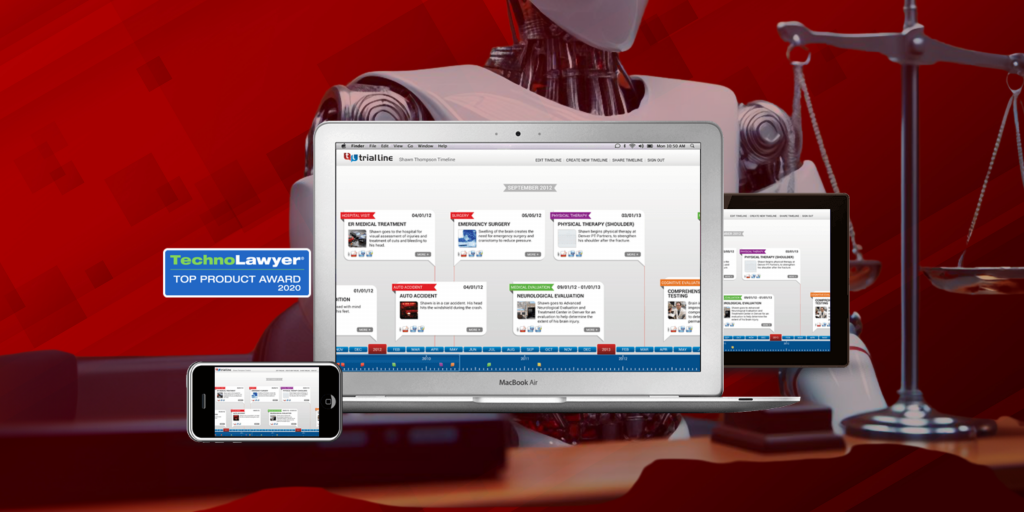
The intersection of AI and law is still developing. As generative AI lawsuits continue to shape regulations, both developers and users must stay alert. Companies using generative AI tools should consult legal experts to ensure compliance with evolving laws.
Staying informed is necessary for navigating this complex landscape. TrialLine offers a practical solution for tracking key developments. Creating timelines for technological advancements and legal disputes allows legal teams to provide clearer guidance on AI-related issues.
Sign up for a free 7-day trial of TrialLine and explore how it can help manage the changing legal framework surrounding generative AI technology.
FAQs About Generative AI Lawsuits
What generative AI companies are being sued?
OpenAI faces lawsuits from The New York Times for alleged copyright infringement and from authors claiming unauthorized use of their books. Stability AI is being sued by artists for AI-generated images resembling original artwork. Anthropic faces a class-action lawsuit for using copyrighted books, while music startups Suno and Udio are being sued by major record labels for AI-generated music tracks.
Can you be sued for AI-generated content?
Yes. Legal action can occur if AI-generated content infringes on copyrighted materials, violates privacy rights, or misuses intellectual property. Users and developers could be liable if the content closely resembles copyrighted works or uses personal data without consent.
What are the AI lawsuits in 2024?
Key 2024 cases include Scarlett Johansson threatening to sue OpenAI for voice imitation, Sony Music warning AI firms over unauthorized content use, and Suno and Udio facing lawsuits for AI-generated music. Anthropic faces author-led copyright claims, and Elon Musk refiled a lawsuit against OpenAI over profit-driven motives.
What are the lawsuits against ChatGPT?
The New York Times sued OpenAI, alleging its articles were used without consent for ChatGPT’s training data. The Center for Investigative Reporting also sued for unauthorized use of journalistic content. Authors like Sarah Silverman have accused OpenAI of direct copyright infringement for using their works without permission.

